American Minute with Bill Federer
Thomas Paine: Patriot to Pariah, the only founder without a gravesite
|
|
The Apostle Paul wrote in I Timothy 4: 1-2:
“Now the Spirit speaks expressly, that in the latter times some shall depart from the faith.”
|
|
|
Thomas Paine's inspiring pamphlet "The American Crisis," catapulted him to being one of America's most respected patriots.
|
|
After the Revolution, Paine moved to Britain in 1787, where he wrote Rights of Man.
Charged with treason, he escaped to France in 1793.
There, he agitated during the French Revolution.
He was granted honorary citizenship and elected to the National Assembly.
|
|
He soon fell out of favor when he objected to the beheading of King Louis XVI.
He was arrested, thrown in jail, and almost executed, till U.S. Ambassador to France, James Monroe, secured his release.
|
|
Paine wrote to Samuel Adams:
"The people of France were running headlong into atheism, and I had the work translated into their own language, to stop them in that career, and fix them in the first article of every man's creed, who has any creed at all -- I believe in God."
|
|
Paine wrote:
"I believe in one God, and no more; and I hope for happiness beyond this life."
He summed up one of his arguments:
"The moral duty of man consists in imitating the moral goodness and beneficence of God manifested in the creation toward all his creatures. That seeing, as we daily do, the goodness of God to all men, it is an example calling upon all men to practice the same toward each other."
He wrote further:
"Were man impressed as fully and as strongly as he ought to be with the belief of a God, his moral life would be regulated by the force of that belief; he would stand in awe of God and of himself, and would not do the thing that could not be concealed from either ... This is deism."
|
|
While in Paris, Paine helped found a group in called Society of Theophilanthropists (lovers of God and man), which had an inscription:
"We believe in the existence of a God, and in the immortality of the soul."
|
|
Paine's opinions transitioned from denouncing the monarchy and aristocracy, to denouncing the Catholic Church, then all churches, and finally, rejecting all religions.
He wrote:
"I do not believe in the creed professed by the Jewish church, by the Roman church, by the Greek church, by the Turkish church, by the Protestant church, nor by any church that I know of. My own mind is my own church."
|
|
Paine often consulted Benjamin Franklin for advice on his political writings.
Franklin, shortly before his death, gave his opinion of a manuscript, presumably Paine’s The Age of Reason:
“I have read your manuscript with some attention. By the argument it contains against a particular Providence, though you allow a general Providence, you strike at the foundations of all religion.
For without the belief of a Providence, that takes cognizance of, guards, and guides, and may favor particular persons, there is no motive to worship a Deity, to fear his displeasure, or to pray for his protection.
I will not enter into any discussion of your principles, though you seem to desire it.
At present I shall only give you my opinion, that, though your reasonings are subtile (extremely thin) and may prevail with some readers, you will not succeed so as to change the general sentiments of mankind on that subject, and the consequence of printing this piece will be, a great deal of odium drawn upon yourself, mischief to you, and no benefit to others.
He that spits against the wind, spits in his own face ..."
|
|
Franklin continued:
"But, were you to succeed, do you imagine any good would be done by it?
You yourself may find it easy to live a virtuous life, without the assistance afforded by religion; you having a clear perception of the advantages of virtue, and the disadvantages of vice, and possessing a strength of resolution sufficient to enable you to resist common temptations.
But think how great a portion of mankind consists of weak and ignorant men and women, and of inexperienced, inconsiderate youth of both sexes, who have need of the motives of religion to restrain them from vice, to support their virtue, and retain them in the practice of it till it becomes habitual, which is the great point for its security.
And perhaps you are indebted to her originally, that is, to your religious education, for the habits of virtue upon which you now justly value yourself ..."
|
|
Franklin added:
"You might easily display your excellent talents of reasoning upon a less hazardous subject, and thereby obtain a rank with our most distinguished authors.
For among us it is not necessary, as among the Hottentots (a nomadic tribe in South Africa), that a youth, to be raised into the company of men, should prove his manhood by beating his mother.
I would advise you, therefore, not to attempt unchaining the tiger, but to burn this piece before it is seen by any other person;
whereby you will save yourself a great deal of mortification by the enemies it may raise against you, and perhaps a good deal of regret and repentance.
If men are so wicked with religion, what would they be if without it.
I intend this letter itself as a proof of my friendship, and therefore add no professions to it; but subscribe simply yours, B. Franklin.”
|
|
Disregarding Franklin's advice, Thomas Paine published The Age of Reason, in three parts, 1794, 1795, and 1807.
To the shock of everyone, he even published a letter openly critical of President George Washington in 1796: "In what fraudulent light must Mr. Washington's character appear in the world."
|
|
Paine's fall from popularity was immediate. He was thoroughly condemned by many of the most notable Americans.
Though he continued to acknowledge a Supreme Being, over two hundred times in The Age of Reason, Paine rejected all organized religions, including Christianity.
|
|
John Adams, a signer of the Declaration of Independence, wrote in his diary, July 26, 1796:
“The Christian religion is, above all the Religions that ever prevailed or existed in ancient or modern times, the religion of Wisdom, Virtue, Equity, and Humanity.
Let the Blackguard Paine say what he will; it is Resignation to God, it is Goodness itself to Man.”
|
|
Charles Carroll, a signer of the Declaration, described Paine's work as:
“... blasphemous writings against the Christian religion.”
|
|
Benjamin Rush, a signer of the Declaration, wrote to John Dickinson, a signer of the Constitution, that Paine's Age of Reason was:
“... absurd and impious.”
|
|
John Witherspoon, a signer of the Declaration, described Paine as:
“... ignorant of human nature as well as an enemy to the Christian faith.”
|
|
|
Elias Boudinot, President of the Congress of the Confederation, published a refutation to Paine's work, titled The Age of Revelation.
|
|
Patrick Henry wrote a refutation, describing The Age of Reason as:
“... the puny efforts of Paine.”
|
|
William Paterson, a signer of the Constitution and a Justice on the U.S. Supreme Court, condemned anyone siding with Paine as:
“... infatuated Americans, why renounce your country, your religion, and your God?”
|
|
Zephaniah Swift, author of America's first law book, wrote:
“He has the impudence and effrontery to address to the citizens of the United States of America a paltry performance which is intended to shake their faith in the religion of their fathers.”
|
|
John Jay, the first Chief Justice of the U.S. Supreme Court, responded to Paine's attack on Christianity:
“I have long been of the opinion that the evidence of the truth of Christianity requires only to be carefully examined to produce conviction in candid minds.”
|
|
Samuel Adams wrote in his last know letter to Paine, November 30, 1802:
“When I heard you had turned your mind to a defense of infidelity, I felt myself much astounded and more grieved, that you had attempted a measure so injurious to the feelings and so repugnant to the true interest of so great a part of the citizens of the United States.
The people of New England, if you will allow me to use a Scripture phrase, are fast returning to their first love.
Will you excite among them the spirit of angry controversy at a time when they are hastening to amity and peace? I am told that some of our newspapers have announced your intention to publish an additional pamphlet upon the principles of your Age of Reason.
Do you think that your pen, or the pen of any other man, can unchristianize the mass of our citizens, or have you hopes of converting a few of them to assist you in so bad a cause.”
|
|
The Apostle Paul had admonished in Hebrews 3:
“See to it, brothers, that none of you has a wicked heart of unbelief that turns away from the living God ... We have come to share in Christ if we hold firmly to the end the assurance we had at first.
As it has been said: 'Today, if you hear His voice, do not harden your hearts, as you did in the rebellion.'
For who were the ones who heard and rebelled? Were they not all those Moses led out of Egypt? ... So we see that it was because of their unbelief that they were unable to enter.”
|
|
|
Paine's irreligious views caused so vehement a backlash that when he returned to New York in 1802, he was treated as “an outcast” in “social ostracism.”
|
|
Sometimes described as an "Englishman by birth, French citizen by decree, and American by adoption,” he consoled himself, remarking:
“Reputation is what men and women think of us; character in what God and the angels know of us.”
|
|
Paine wrote regarding the afterlife:
"I trouble not myself about the manner of future existence. I content myself with believing, even to positive conviction, that the power that gave me existence is able to continue it in any form and manner he pleases, either with or without this body."
He wrote in his Private Thoughts on a Future State:
"I consider myself in the hands of my Creator, and that he will dispose of me after this life consistently with his justice and goodness"
Paine's Last Will began with the words: "Reposing confidence in my Creator, God," and ended with: "I die in perfect composure and resignation to the will of my Creator, God."
|
|
A dying account, though of questionable origin, is attributed to him:
“I would give worlds if I had them, that The Age of Reason had never been published. O Lord, help me! Christ, help me! O God, what have I done to suffer so much? But there is no God! But if there should be, what will become of me hereafter? Stay with me, for God’s sake! Send even a child to stay with me, for it is hell to be alone. If ever the Devil had an agent, I have been that one.”
|
|
In 1809, Paine died in Greenwich Village, New York, on 59 Grove Street.
No American cemetery would accept his remains, so he was unceremoniously buried in a field on a farm in New Rochelle, New York.
|
|
In 1819, William Cobbett dug up Paine's body and shipped it to England, but upon reaching Liverpool, the customs agents refused to allow his corpse into the country.
His remains were either lost at sea or allegedly kept in a trunk in Cobbett's attic.
|
|
Cobbett's son supposedly auctioned off the bones.
In the 1850s, a Unitarian minister in England claimed to have Paine's skull and right hand.
In the 1930s, a woman in Brighton, England, claimed to have Paine's jawbone.
In 1987, a Sydney businessmen claimed to have purchased Paine's skull while on vacation in London and sold it to an Australian named John Burgess.
One legend is that his bones were turned into buttons, and another rumor is that one of his leg bones is in the wall of a tavern in England.
He is the only founder without a gravesite.
|
|
As a tragic lesson, Thomas Paine went from the height of popularity as America's premier pamphleteer to dying a penniless drunk in Manhattan, with only six people attending his funeral.
He is memorialized in the rhyme:
"Poor Tom Paine! There he lies:
Nobody laughs and nobody cries
Where he has gone or how he fares
Nobody knows and nobody cares."
|
|
The Apostle Paul challenged believers in 1 Corinthians 9:24-27:
"Know ye not that they which run in a race run all, but one receiveth the prize?
So run, that ye may obtain ...
I therefore so run, not as uncertainly; so fight I, not as one that beateth the air:
But I keep under my body, and bring it into subjection: lest that by any means, when I have preached to others, I myself should be a castaway.”
|
|
Schedule Bill Federer for informative interviews & captivating PowerPoint presentations: 314-502-8924 wjfederer@gmail.com
American Minute is a registered trademark of William J. Federer. Permission is granted to forward, reprint, or duplicate, with acknowledgment.
|
|
|
|
|
|
|
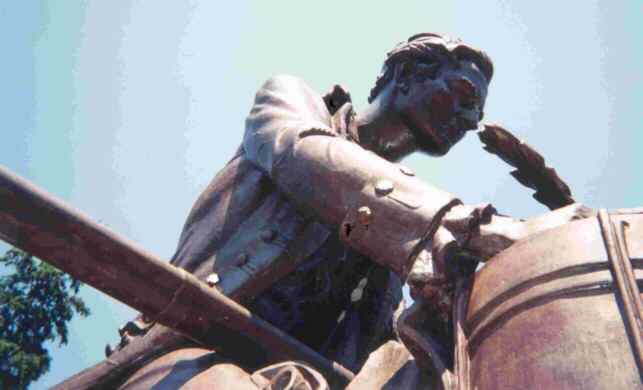

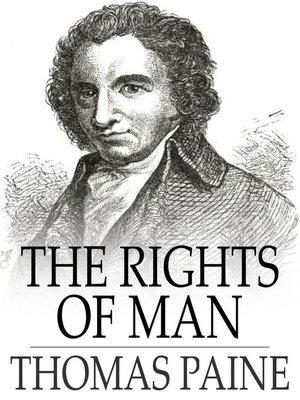


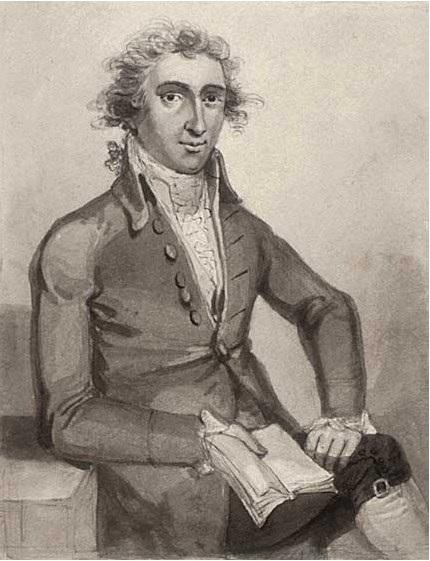
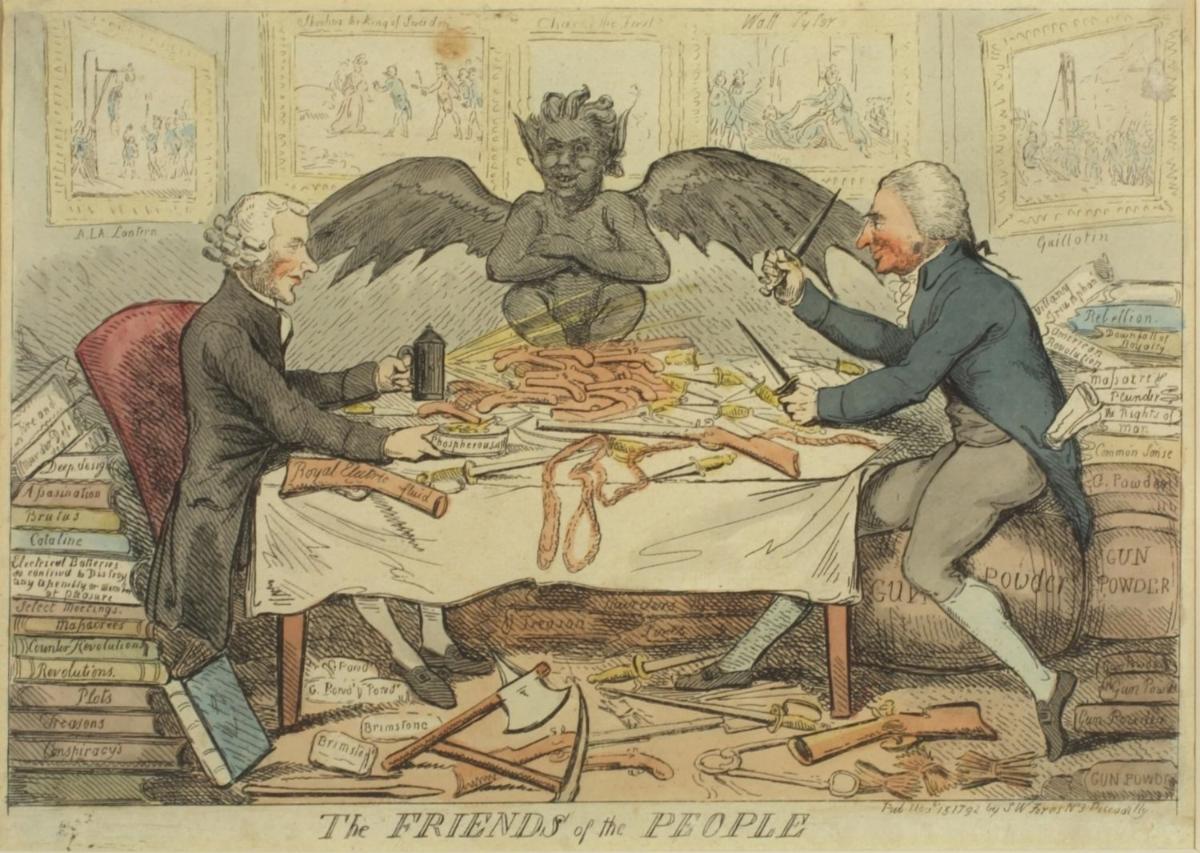
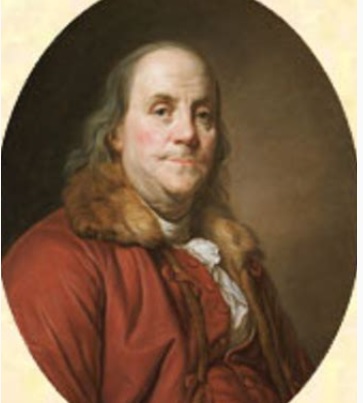

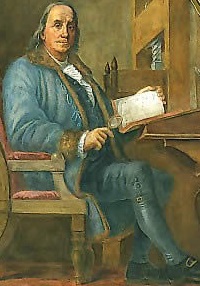

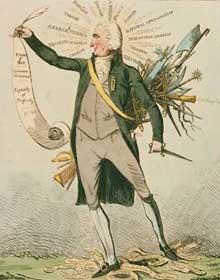



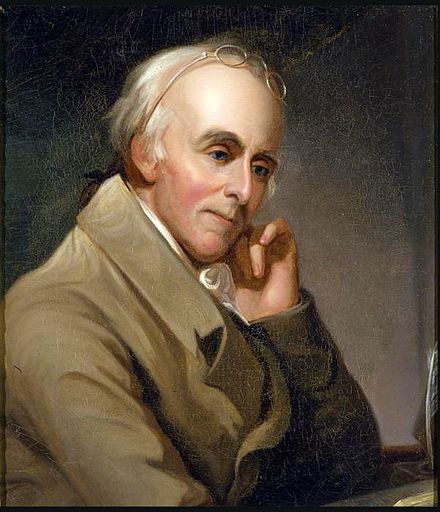

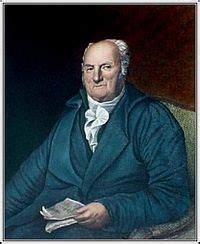
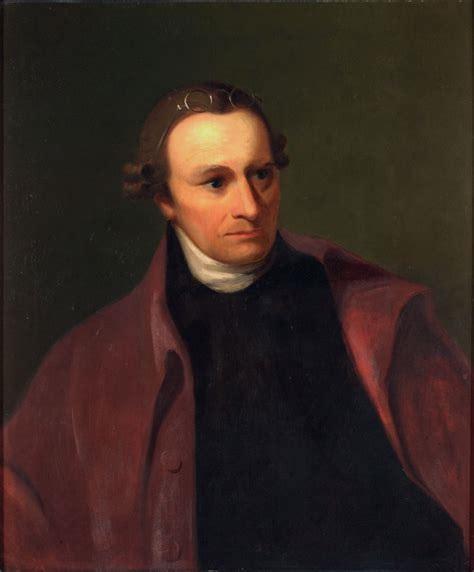
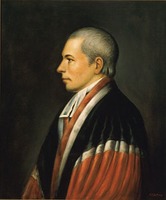
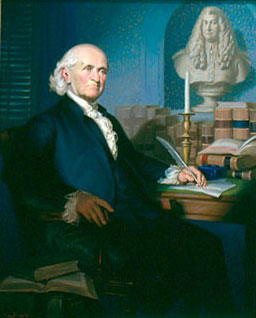

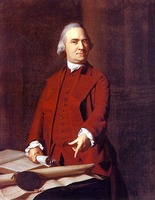

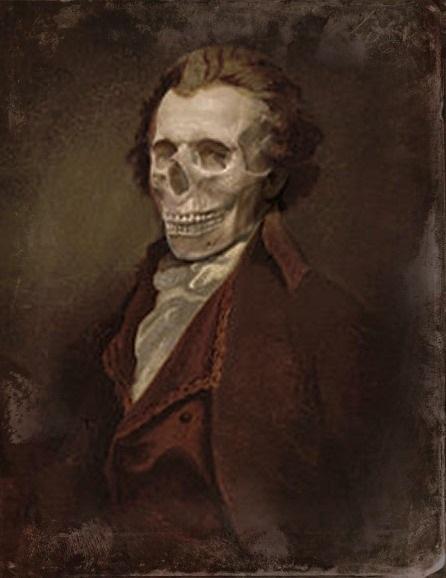
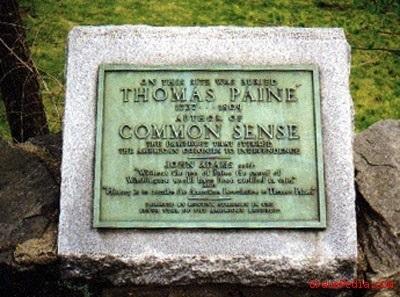
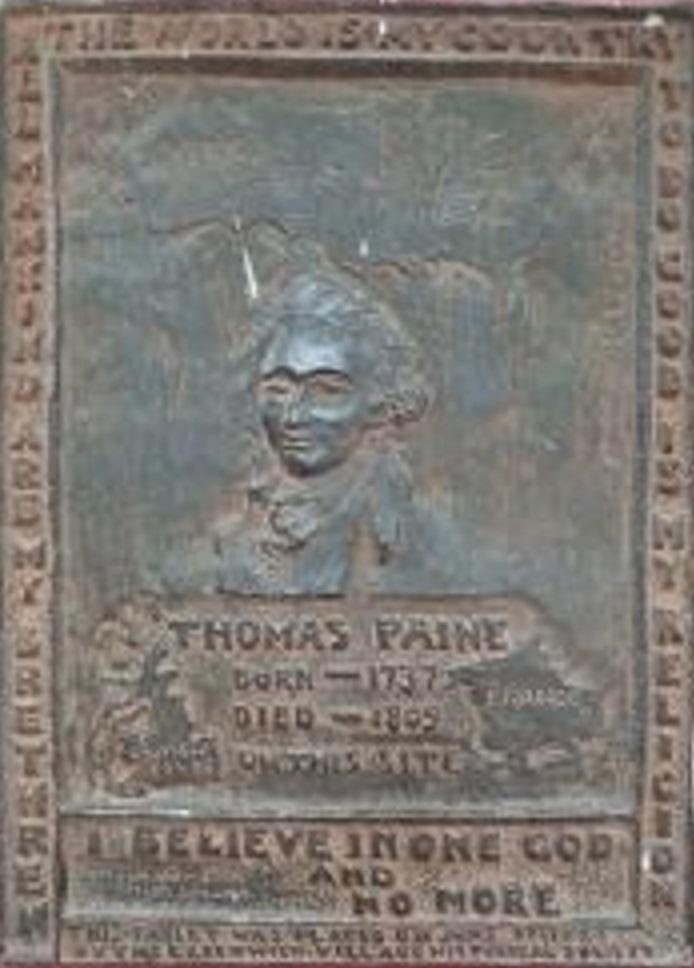




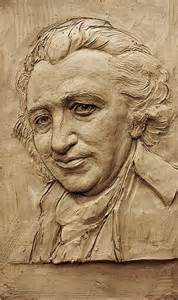


No comments:
Post a Comment